Candidates for BED offices
Program Chair Elect
Manage the Work In Progress portion of BED program at the Annual Conference. It is expected that this individual will subsequently serve as Program Chair, Division Chair, and Division Past Chair in the following 3 years.
- Alexis Ortiz-Rosario, Ohio State University
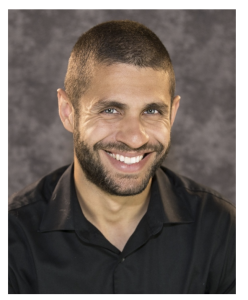 Alexis Ortiz-Rosario currently serves as an Associate Professor of Practice in the
Alexis Ortiz-Rosario currently serves as an Associate Professor of Practice in the
Department of Biomedical Engineering at Ohio State University. He has served as treasurer for the BED for the past four years and active member for five years. Alexis is also an active member on the broader engineering education community as co-founder and lead for the Biomedical Engineering Educator Community (BEEC), a virtual community of practice that looks to enhance collaboration and sharing of
evidence-based teaching practices in the field of biomedical engineering.
- Colin Drummond, Case Western Reserve University
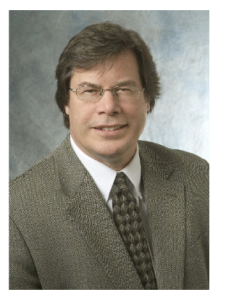
In January 2015, Colin re-joined the Department of Biomedical Engineering as Professor and Assistant Chair, to lead efforts in undergraduate education with a specific focus on expanding experiential design courses and professional practice preparation. Shortly after returning to the School of Engineering, Professor Drummond assumed the role of Faculty Director for the Masters of Engineering and Management Program. Colin’s research focuses on simulation and applied informatics; much of this research has a strong translational focus, resulting in collaboration and secondary appointments in the School of Medicine and the University Hospitals Case Medical Center. Most recently, Colin was with the School of Nursing. From 2008-2013, Colin was the Director of the Coulter-Case Translational Research Partnership (CCTRP) in the Department of Biomedical Engineering.
Treasurer (2 year term, 2023-2025)
Oversee and maintain the financial records of the Division.
- Jennifer Leight, Ohio State University
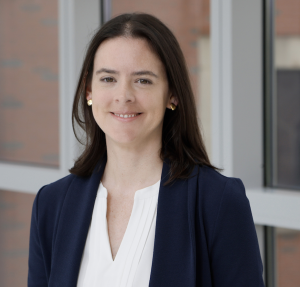 Dr. Jennifer Leight is a professional practice associate professor in the Biomedical Engineering Department at the Ohio State University. Dr. Leight started her faculty career at OSU in 2014, and her research lab focused on biomaterials and the tumor microenvironment. In 2022, she shifted career tracks to focus on education and the scholarship of teaching and learning. Jen has been a member of ASEE since 2015 and is excited to get more involved in BED and serve this community.
Dr. Jennifer Leight is a professional practice associate professor in the Biomedical Engineering Department at the Ohio State University. Dr. Leight started her faculty career at OSU in 2014, and her research lab focused on biomaterials and the tumor microenvironment. In 2022, she shifted career tracks to focus on education and the scholarship of teaching and learning. Jen has been a member of ASEE since 2015 and is excited to get more involved in BED and serve this community.
2. Joseph Towles, Swarthmore College
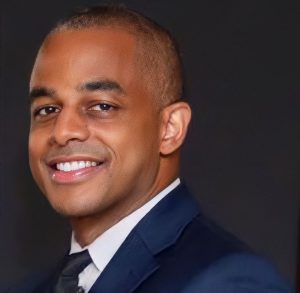 Joseph Towles is an Associate Professor in the Engineering Department at Swarthmore College. Joe completed his PhD in Mechanical Engineering at Stanford. Joe’s research aims to discover general principles of neuromuscular mechanics and control of the human body as gleaned from studies of the hand. His work further aims to translate those principles into innovative surgical and rehabilitative strategies that restore the functional use of the hand in persons with musculoskeletal or neurologic impairment. Joe’s research also aims to understand how best to engage students around engineering concepts/experiences and to use what’s learned to improve student experiences in classroom and laboratory settings. Joe’s teaching interests are in the areas of solid mechanics, neuromuscular biomechanics, dynamical systems and control, and engineering design. Joe has been an active member of the Biomedical Engineering Division since 2014. In recent years, Joe served as the Division’s Interdivisional representative and Secretary/Webmaster.
Joseph Towles is an Associate Professor in the Engineering Department at Swarthmore College. Joe completed his PhD in Mechanical Engineering at Stanford. Joe’s research aims to discover general principles of neuromuscular mechanics and control of the human body as gleaned from studies of the hand. His work further aims to translate those principles into innovative surgical and rehabilitative strategies that restore the functional use of the hand in persons with musculoskeletal or neurologic impairment. Joe’s research also aims to understand how best to engage students around engineering concepts/experiences and to use what’s learned to improve student experiences in classroom and laboratory settings. Joe’s teaching interests are in the areas of solid mechanics, neuromuscular biomechanics, dynamical systems and control, and engineering design. Joe has been an active member of the Biomedical Engineering Division since 2014. In recent years, Joe served as the Division’s Interdivisional representative and Secretary/Webmaster.
3. Xianglong Wang, University of California at Davis
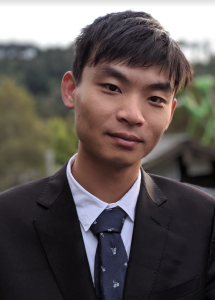
Dr. Xianglong Wang received his Ph.D. in Biomedical Engineering and Scientific Computing from University of Michigan in 2020. He is currently an Assistant Professor of Teaching at the Department of Biomedical Engineering in University of California, Davis. Prior to joining UC Davis, he spent two years as an Assistant Professor (Teaching) at Washington State University. He is interested in teaching quantitative and computational subjects in biomedical engineering, such as bioinstrumentation, biotransport, and machine learning. He also has three years of experience teaching BME senior design. His current research interests include implementing problem-based learning in bioinstrumentation lectures, gender equity issues in teaching of machine learning courses, and sense of belonging in BME undergraduate students. He is also involved in NSF-funded Ph.D. training programs for the next generation of neural engineers at UC Davis. Dr. Wang has received the 2022 Reid Miller Teaching Award at Washington State University and the 2023 Teaching Excellence Award in biomedical engineering at UC Davis. He has been an ASEE and BED members since 2021 and is looking forward to serving this community.
Awards Chair
Manage the process of awards nominations and lead the awards selections committee.
- Yanfen Li, University of Massachusetts Lowell
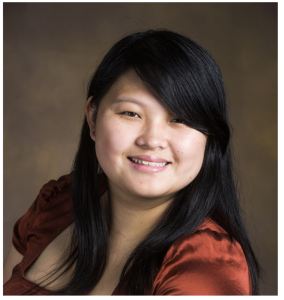 Dr. Yanfen Li is an Assistant Professor in Biomedical Engineering at the University of Massachusetts Lowell. She received her Ph.D. in Bioengineering from the University of Illinois at Urbana Champaign in 2018. Dr. Li’s research focus on increasing the recruitment and retention of underrepresented and under resourced students in engineering. Her work spans the areas of curriculum instruction and design, program design and evaluation, and the first-year college experience. She is PI of a NSF S-STEM project focused on supporting low income, high achieving students to pursue graduate school and become future faculty. She is also Co-PI of an NSF REU project to support undergraduate students’ research in medical design innovation. She has received several teaching awards including the UMass Lowell Award for Excellence in Innovative Teaching in 2021 and the Biomedical Engineering Teaching Award from the American Society for Engineering Education in 2021. She has been a member of BED since she was a graduate student in 2018 and was the Events Chair during 2022 to 2023.
Dr. Yanfen Li is an Assistant Professor in Biomedical Engineering at the University of Massachusetts Lowell. She received her Ph.D. in Bioengineering from the University of Illinois at Urbana Champaign in 2018. Dr. Li’s research focus on increasing the recruitment and retention of underrepresented and under resourced students in engineering. Her work spans the areas of curriculum instruction and design, program design and evaluation, and the first-year college experience. She is PI of a NSF S-STEM project focused on supporting low income, high achieving students to pursue graduate school and become future faculty. She is also Co-PI of an NSF REU project to support undergraduate students’ research in medical design innovation. She has received several teaching awards including the UMass Lowell Award for Excellence in Innovative Teaching in 2021 and the Biomedical Engineering Teaching Award from the American Society for Engineering Education in 2021. She has been a member of BED since she was a graduate student in 2018 and was the Events Chair during 2022 to 2023.
2. Melissa Wrobel , University of Michigan
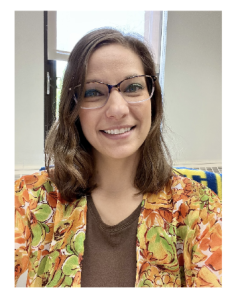 Melissa is beginning her 6th year as a Lecturer in the Department of Biomedical Engineering at the University of Michigan in Ann Arbor. She teaches both first-year and senior engineering design courses as well as a biochemical thermodynamics course. Melissa serves as her department’s ABET Coordinator and as the Faculty Advisor to Michigan’s Biomedical Engineering Society (BMES) student chapter. She is also the President of the Southeastern Michigan Alumni Chapter of Tau Beta Pi, the engineering honor society. Melissa holds a B.S.E. in Materials Science and Engineering from the University of Michigan and an M.S. and Ph.D. in Biomedical Engineering from Wayne State University where she studied biomaterials for nerve regeneration. Her current educational research interests include cooperative learning environments, novel assessment methods, oral communication and peer feedback, and teaching inclusively.
Melissa is beginning her 6th year as a Lecturer in the Department of Biomedical Engineering at the University of Michigan in Ann Arbor. She teaches both first-year and senior engineering design courses as well as a biochemical thermodynamics course. Melissa serves as her department’s ABET Coordinator and as the Faculty Advisor to Michigan’s Biomedical Engineering Society (BMES) student chapter. She is also the President of the Southeastern Michigan Alumni Chapter of Tau Beta Pi, the engineering honor society. Melissa holds a B.S.E. in Materials Science and Engineering from the University of Michigan and an M.S. and Ph.D. in Biomedical Engineering from Wayne State University where she studied biomaterials for nerve regeneration. Her current educational research interests include cooperative learning environments, novel assessment methods, oral communication and peer feedback, and teaching inclusively.
Secretary / Webmaster
Responsibilities include taking minutes at the BED business meeting and other meetings, producing division publications, and maintaining the BED WordPress-based website.
-
- Mostafa Elsaadany, University of Arkansas
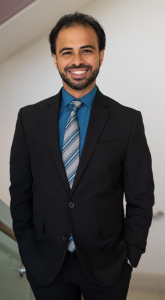 Mostafa Elsaadany, Ph.D. is a member of ASEE since 2017 and is an active member of the ASEE Biomedical Engineering Division. He joined the University of Arkansas Department of Biomedical Engineering as a Teaching Assistant Professor in June 2019. Before joining The University of Arkansas, he took a Lecturer position at The Ohio State University – Marion in 2017. He taught many General and Biomedical Engineering courses including Fundamentals of Engineering, Statics, Mechanics of Materials, Engineering Economics, and Materials Science Engineering. At the University of Arkansas, Dr. Elsaadany teaches Introduction to Biomedical Engineering, Biomechanical Engineering, Biomolecular Engineering, Senior Design, and Entrepreneurial Bioengineering. Dr. Elsaadany’s research included scaffold-free tissue engineering using non-thermal dielectric plasma, scaffold-guided musculoskeletal tissue engineering, and multi-scale computational modeling of tissue-engineered constructs. Currently, his research focus is in Engineering Education including investigating the methods to promote an inclusive environment for historically marginalized STEM students. Further, he studies strategies for instilling the entrepreneurial mindset in engineering students, and non-conventional teaching using state-of-the-art technology like augmented and virtual reality. Also, he is investigating the regeneration of the musculoskeletal system by the integration of novel biodegradable metals and 3D bioprinting. His research has resulted in 40+ peer-reviewed articles and conference proceedings. Dr. Elsaadany is a candidate for a Master of Business Administration degree from the University of Arkansas Walton College of Business with the expected completion of the degree requirements in 2024.
Mostafa Elsaadany, Ph.D. is a member of ASEE since 2017 and is an active member of the ASEE Biomedical Engineering Division. He joined the University of Arkansas Department of Biomedical Engineering as a Teaching Assistant Professor in June 2019. Before joining The University of Arkansas, he took a Lecturer position at The Ohio State University – Marion in 2017. He taught many General and Biomedical Engineering courses including Fundamentals of Engineering, Statics, Mechanics of Materials, Engineering Economics, and Materials Science Engineering. At the University of Arkansas, Dr. Elsaadany teaches Introduction to Biomedical Engineering, Biomechanical Engineering, Biomolecular Engineering, Senior Design, and Entrepreneurial Bioengineering. Dr. Elsaadany’s research included scaffold-free tissue engineering using non-thermal dielectric plasma, scaffold-guided musculoskeletal tissue engineering, and multi-scale computational modeling of tissue-engineered constructs. Currently, his research focus is in Engineering Education including investigating the methods to promote an inclusive environment for historically marginalized STEM students. Further, he studies strategies for instilling the entrepreneurial mindset in engineering students, and non-conventional teaching using state-of-the-art technology like augmented and virtual reality. Also, he is investigating the regeneration of the musculoskeletal system by the integration of novel biodegradable metals and 3D bioprinting. His research has resulted in 40+ peer-reviewed articles and conference proceedings. Dr. Elsaadany is a candidate for a Master of Business Administration degree from the University of Arkansas Walton College of Business with the expected completion of the degree requirements in 2024.
- Pun To (Doug) Yung, Syracuse University
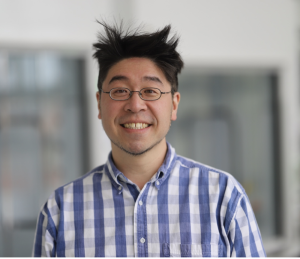
Doug Yung received his Ph.D. in Bioengineering at Caltech and Jet Propulsion Laboratory interfacing microbes with engineering tools on a micro- and nano-scale. He is unravelling methods to rapidly assess the viability of superbugs and harness energy from extremophiles using a combination of electrochemical, optical techniques and MEMS devices. He helped with establishing the department of biomedical engineering at the Chinese University of Hong Kong from 2010 to 2016 before working at Syracuse University. He served as the program director of the bioengineering undergraduate program and is an advocate of a hybrid teaching and learning environment replete with project-based hands-on work, experiential activities and peer collaboration, a style departing from traditional top-down expository pedagogies.
3. Xianglong Wang, University of California at Davis

Dr. Xianglong Wang received his Ph.D. in Biomedical Engineering and Scientific Computing from University of Michigan in 2020. He is currently an Assistant Professor of Teaching at the Department of Biomedical Engineering in University of California, Davis. Prior to joining UC Davis, he spent two years as an Assistant Professor (Teaching) at Washington State University. He is interested in teaching quantitative and computational subjects in biomedical engineering, such as bioinstrumentation, biotransport, and machine learning. He also has three years of experience teaching BME senior design. His current research interests include implementing problem-based learning in bioinstrumentation lectures, gender equity issues in teaching of machine learning courses, and sense of belonging in BME undergraduate students. He is also involved in NSF-funded Ph.D. training programs for the next generation of neural engineers at UC Davis. Dr. Wang has received the 2022 Reid Miller Teaching Award at Washington State University and the 2023 Teaching Excellence Award in biomedical engineering at UC Davis. He has been an ASEE and BED members since 2021 and is looking forward to serving this community.
4. Annie Hedman, Texas A&M University
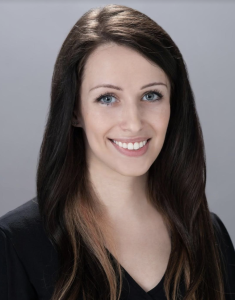
Annie Hedman (Anne-Marie Ginn-Hedman), Ph.D., is an instructional assistant professor within the Department of Biomedical Engineering at Texas A&M University. She specializes in hands-on context-based learning with a love for all things biomechanics. She has created labs ranging from DIY motion capture to surgical simulation, and teaches her honors students how to 3D print synthetic hearts! Annie is also an imaging specialist and research mentor for the Texas A&M Cardiovascular Pathology Lab, and an active member of the American Society for Artificial Internal Organs (ASAIO); she has helped plan many of their events including speed-networking, meet-the-pioneers, and their annual capstone design competition. Annie has been an ASEE BED member since receiving her Ph.D. in 2022, and has since enjoyed presenting at the ASEE-GSW convention and attending this year’s national conference. Annie hopes to become more involved with ASEE BED through their mentorship program and leadership opportunities so she can learn from her peers and share her passion for engineering education.
5. Elizabeth (Lizzy) Mays, University of Michigan
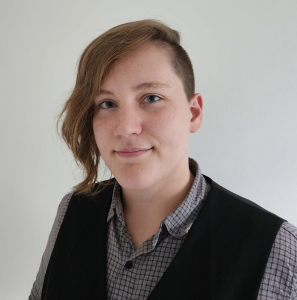 I obtained my BSE and MSE in Biomedical Engineering at University of Michigan, Ann Arbor, MI, and then went to Wayne State University, Detroit, MI for my PhD in Biomedical Engineering. During my time at WSU I felt the call to teach and pursued a Post-Doc for Engineering Education at Michigan State University, East Lansing, MI. I then returned full circle the University of Michigan, Department of Biomedical Engineering, where I teach Senior Design, Junior Design, and sophomore level labs. I’ve had experience on the board of BMES in undergrad as a Social Chair, and take extensive notes as a baseline. I’m excited to be more involved in the BED community, thank you for your consideration!
I obtained my BSE and MSE in Biomedical Engineering at University of Michigan, Ann Arbor, MI, and then went to Wayne State University, Detroit, MI for my PhD in Biomedical Engineering. During my time at WSU I felt the call to teach and pursued a Post-Doc for Engineering Education at Michigan State University, East Lansing, MI. I then returned full circle the University of Michigan, Department of Biomedical Engineering, where I teach Senior Design, Junior Design, and sophomore level labs. I’ve had experience on the board of BMES in undergrad as a Social Chair, and take extensive notes as a baseline. I’m excited to be more involved in the BED community, thank you for your consideration!
Events Chair
Will be in charge of organizing and planning the BED social and awards dinner, and any other events that arise.
-
- Mostafa Elsaadany, University of Arkansas
 Mostafa Elsaadany, Ph.D. is a member of ASEE since 2017 and is an active member of the ASEE Biomedical Engineering Division. He joined the University of Arkansas Department of Biomedical Engineering as a Teaching Assistant Professor in June 2019. Before joining The University of Arkansas, he took a Lecturer position at The Ohio State University – Marion in 2017. He taught many General and Biomedical Engineering courses including Fundamentals of Engineering, Statics, Mechanics of Materials, Engineering Economics, and Materials Science Engineering. At the University of Arkansas, Dr. Elsaadany teaches Introduction to Biomedical Engineering, Biomechanical Engineering, Biomolecular Engineering, Senior Design, and
Mostafa Elsaadany, Ph.D. is a member of ASEE since 2017 and is an active member of the ASEE Biomedical Engineering Division. He joined the University of Arkansas Department of Biomedical Engineering as a Teaching Assistant Professor in June 2019. Before joining The University of Arkansas, he took a Lecturer position at The Ohio State University – Marion in 2017. He taught many General and Biomedical Engineering courses including Fundamentals of Engineering, Statics, Mechanics of Materials, Engineering Economics, and Materials Science Engineering. At the University of Arkansas, Dr. Elsaadany teaches Introduction to Biomedical Engineering, Biomechanical Engineering, Biomolecular Engineering, Senior Design, and
Entrepreneurial Bioengineering. Dr. Elsaadany’s research included scaffold-free tissue engineering using non-thermal dielectric plasma, scaffold-guided musculoskeletal tissue engineering, and multi-scale computational modeling of tissue-engineered constructs. Currently, his research focus is in Engineering Education including investigating the methods to promote an
inclusive environment for historically marginalized STEM students. Further, he studies strategies for instilling the entrepreneurial mindset in engineering students, and non-conventional teaching using state-of-the-art technology like augmented and virtual reality. Also, he is investigating the regeneration of the musculoskeletal system by the integration of novel biodegradable metals and 3D bioprinting. His research has resulted in 40+ peer-reviewed articles and conference proceedings. Dr. Elsaadany is a candidate for a Master of Business Administration degree from the University of Arkansas Walton College of Business with the expected completion of the degree requirements in 2024.
2. Cameron Kim, Duke University
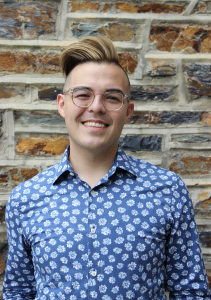 Cameron Kim is an Assistant Professor of the Practice in Biomedical Engineering at Duke University and member of the Duke Center for Advanced Genomic Technologies. He received his Ph.D. in Bioengineering at Stanford where he studied protein and RNA-based control systems within alternative splicing devices for mammalian synthetic biology applications. Since coming to Duke in 2020, Dr. Kim has been researching ethics-guided design frameworks for emergent biotechnologies, including gene and cell-based therapies, to improve the classroom experience for biomedical engineering students through team and project-based learning. He serves as the research advisor for the Duke International Genetically Engineered Machine undergraduate research group to promote authentic research experiences and mentor the next generation of bioengineers. Currently, Dr. Kim and his undergraduate team of 15 students are initiating a project on developing high-throughput screening of novel protein secretion signals to stimulate chimeric antigen receptor T cells for signal amplification. He also serves as the Associate Director for Undergraduate Studies in Biomedical Engineering. In recognition of his teaching, he received the Bass Connections Leadership Award and the Klein Family Distinguished Teaching award in 2023. Overall, his work aims to advance the field of biomedical engineering through innovative education and research, with a focus on improving society through emergent biotechnologies.
Cameron Kim is an Assistant Professor of the Practice in Biomedical Engineering at Duke University and member of the Duke Center for Advanced Genomic Technologies. He received his Ph.D. in Bioengineering at Stanford where he studied protein and RNA-based control systems within alternative splicing devices for mammalian synthetic biology applications. Since coming to Duke in 2020, Dr. Kim has been researching ethics-guided design frameworks for emergent biotechnologies, including gene and cell-based therapies, to improve the classroom experience for biomedical engineering students through team and project-based learning. He serves as the research advisor for the Duke International Genetically Engineered Machine undergraduate research group to promote authentic research experiences and mentor the next generation of bioengineers. Currently, Dr. Kim and his undergraduate team of 15 students are initiating a project on developing high-throughput screening of novel protein secretion signals to stimulate chimeric antigen receptor T cells for signal amplification. He also serves as the Associate Director for Undergraduate Studies in Biomedical Engineering. In recognition of his teaching, he received the Bass Connections Leadership Award and the Klein Family Distinguished Teaching award in 2023. Overall, his work aims to advance the field of biomedical engineering through innovative education and research, with a focus on improving society through emergent biotechnologies.
3. Annie Hedman, Texas A&M University

Annie Hedman (Anne-Marie Ginn-Hedman), Ph.D., is an instructional assistant professor within the Department of Biomedical Engineering at Texas A&M University. She specializes in hands-on context-based learning with a love for all things biomechanics. She has created labs ranging from DIY motion capture to surgical simulation, and teaches her honors students how to 3D print synthetic hearts! Annie is also an imaging specialist and research mentor for the Texas A&M Cardiovascular Pathology Lab, and an active member of the American Society for Artificial Internal Organs (ASAIO); she has helped plan many of their events including speed-networking, meet-the-pioneers, and their annual capstone design competition. Annie has been an ASEE BED member since receiving her Ph.D. in 2022, and has since enjoyed presenting at the ASEE-GSW convention and attending this year’s national conference. Annie hopes to become more involved with ASEE BED through their mentorship program and leadership opportunities so she can learn from her peers and share her passion for engineering education.
4. Elizabeth (Lizzy) Mays, University of Michigan
 I obtained my BSE and MSE in Biomedical Engineering at University of Michigan, Ann Arbor, MI, and then went to Wayne State University, Detroit, MI for my PhD in Biomedical Engineering. During my time at WSU I felt the call to teach and pursued a Post-Doc for Engineering Education at Michigan State University, East Lansing, MI. I then returned full circle the University of Michigan, Department of Biomedical Engineering, where I teach Senior Design, Junior Design, and sophomore level labs. I’ve had experience on the board of BMES in undergrad as a Social Chair, and take extensive notes as a baseline. I’m excited to be more involved in the BED community, thank you for your consideration!
I obtained my BSE and MSE in Biomedical Engineering at University of Michigan, Ann Arbor, MI, and then went to Wayne State University, Detroit, MI for my PhD in Biomedical Engineering. During my time at WSU I felt the call to teach and pursued a Post-Doc for Engineering Education at Michigan State University, East Lansing, MI. I then returned full circle the University of Michigan, Department of Biomedical Engineering, where I teach Senior Design, Junior Design, and sophomore level labs. I’ve had experience on the board of BMES in undergrad as a Social Chair, and take extensive notes as a baseline. I’m excited to be more involved in the BED community, thank you for your consideration!
Member at large (3 year term, 2023-2026)
Members at large serve as and recruit judges for the annual poster session, serve as judges for the BED Travel Award(s), and serve in other capacities on an ad-hoc basis.
- Mostafa Elsaadany, University of Arkansas
 Mostafa Elsaadany, Ph.D. is a member of ASEE since 2017 and is an active member of the ASEE Biomedical Engineering Division. He joined the University of Arkansas Department of Biomedical Engineering as a Teaching Assistant Professor in June 2019. Before joining The University of Arkansas, he took a Lecturer position at The Ohio State University – Marion in 2017. He taught many General and Biomedical Engineering courses including Fundamentals of Engineering, Statics, Mechanics of Materials, Engineering Economics, and Materials Science Engineering. At the University of Arkansas, Dr. Elsaadany teaches Introduction to Biomedical Engineering, Biomechanical Engineering, Biomolecular Engineering, Senior Design, and
Mostafa Elsaadany, Ph.D. is a member of ASEE since 2017 and is an active member of the ASEE Biomedical Engineering Division. He joined the University of Arkansas Department of Biomedical Engineering as a Teaching Assistant Professor in June 2019. Before joining The University of Arkansas, he took a Lecturer position at The Ohio State University – Marion in 2017. He taught many General and Biomedical Engineering courses including Fundamentals of Engineering, Statics, Mechanics of Materials, Engineering Economics, and Materials Science Engineering. At the University of Arkansas, Dr. Elsaadany teaches Introduction to Biomedical Engineering, Biomechanical Engineering, Biomolecular Engineering, Senior Design, and
Entrepreneurial Bioengineering. Dr. Elsaadany’s research included scaffold-free tissue engineering using non-thermal dielectric plasma, scaffold-guided musculoskeletal tissue engineering, and multi-scale computational modeling of tissue-engineered constructs. Currently, his research focus is in Engineering Education including investigating the methods to promote an
inclusive environment for historically marginalized STEM students. Further, he studies strategies for instilling the entrepreneurial mindset in engineering students, and non-conventional teaching using state-of-the-art technology like augmented and virtual reality. Also, he is investigating the regeneration of the musculoskeletal system by the integration of novel biodegradable metals and 3D bioprinting. His research has resulted in 40+ peer-reviewed articles and conference proceedings. Dr. Elsaadany is a candidate for a Master of Business Administration degree from the University of Arkansas Walton College of Business with the expected completion of the degree requirements in 2024.
- Yanfen Li , University of Massachusetts Lowell
 Dr. Yanfen Li is an Assistant Professor in Biomedical Engineering at the University of Massachusetts Lowell. She received her Ph.D. in Bioengineering from the University of Illinois at Urbana Champaign in 2018. Dr. Li’s research focus on increasing the recruitment and retention of underrepresented and under resourced students in engineering. Her work spans the areas of curriculum instruction and design, program design and evaluation, and the first-year college experience. She is PI of a NSF S-STEM project focused on supporting low income, high achieving students to pursue graduate school and become future faculty. She is also Co-PI of an NSF REU project to support undergraduate students’ research in medical design innovation. She has received several teaching awards including the UMass Lowell Award for Excellence in Innovative Teaching in 2021 and the Biomedical Engineering Teaching Award from the American Society for Engineering Education in 2021. She has been a member of BED since she was a graduate student in 2018 and was the Events Chair during 2022 to 2023.
Dr. Yanfen Li is an Assistant Professor in Biomedical Engineering at the University of Massachusetts Lowell. She received her Ph.D. in Bioengineering from the University of Illinois at Urbana Champaign in 2018. Dr. Li’s research focus on increasing the recruitment and retention of underrepresented and under resourced students in engineering. Her work spans the areas of curriculum instruction and design, program design and evaluation, and the first-year college experience. She is PI of a NSF S-STEM project focused on supporting low income, high achieving students to pursue graduate school and become future faculty. She is also Co-PI of an NSF REU project to support undergraduate students’ research in medical design innovation. She has received several teaching awards including the UMass Lowell Award for Excellence in Innovative Teaching in 2021 and the Biomedical Engineering Teaching Award from the American Society for Engineering Education in 2021. She has been a member of BED since she was a graduate student in 2018 and was the Events Chair during 2022 to 2023.
3. Melissa Wrobel , University of Michigan
 Melissa is beginning her 6th year as a Lecturer in the Department of Biomedical Engineering at the University of Michigan in Ann Arbor. She teaches both first-year and senior engineering design courses as well as a biochemical thermodynamics course. Melissa serves as her department’s ABET Coordinator and as the Faculty Advisor to Michigan’s Biomedical Engineering Society (BMES) student chapter. She is also the President of the Southeastern Michigan Alumni Chapter of Tau Beta Pi, the engineering honor society. Melissa holds a B.S.E. in Materials Science and Engineering from the University of Michigan and an M.S. and Ph.D. in Biomedical Engineering from Wayne State University where she studied biomaterials for nerve regeneration. Her current educational research interests include cooperative learning environments, novel assessment methods, oral communication and peer feedback, and teaching inclusively.
Melissa is beginning her 6th year as a Lecturer in the Department of Biomedical Engineering at the University of Michigan in Ann Arbor. She teaches both first-year and senior engineering design courses as well as a biochemical thermodynamics course. Melissa serves as her department’s ABET Coordinator and as the Faculty Advisor to Michigan’s Biomedical Engineering Society (BMES) student chapter. She is also the President of the Southeastern Michigan Alumni Chapter of Tau Beta Pi, the engineering honor society. Melissa holds a B.S.E. in Materials Science and Engineering from the University of Michigan and an M.S. and Ph.D. in Biomedical Engineering from Wayne State University where she studied biomaterials for nerve regeneration. Her current educational research interests include cooperative learning environments, novel assessment methods, oral communication and peer feedback, and teaching inclusively.
4. Cameron Kim, Duke University
 Cameron Kim is an Assistant Professor of the Practice in Biomedical Engineering at Duke University and member of the Duke Center for Advanced Genomic Technologies. He received his Ph.D. in Bioengineering at Stanford where he studied protein and RNA-based control systems within alternative splicing devices for mammalian synthetic biology applications. Since coming to Duke in 2020, Dr. Kim has been researching ethics-guided design frameworks for emergent biotechnologies, including gene and cell-based therapies, to improve the classroom experience for biomedical engineering students through team and project-based learning. He serves as the research advisor for the Duke International Genetically Engineered Machine undergraduate research group to promote authentic research experiences and mentor the next generation of bioengineers. Currently, Dr. Kim and his undergraduate team of 15 students are initiating a project on developing high-throughput screening of novel protein secretion signals to stimulate chimeric antigen receptor T cells for signal amplification. He also serves as the Associate Director for Undergraduate Studies in Biomedical Engineering. In recognition of his teaching, he received the Bass Connections Leadership Award and the Klein Family Distinguished Teaching award in 2023. Overall, his work aims to advance the field of biomedical engineering through innovative education and research, with a focus on improving society through emergent biotechnologies.
Cameron Kim is an Assistant Professor of the Practice in Biomedical Engineering at Duke University and member of the Duke Center for Advanced Genomic Technologies. He received his Ph.D. in Bioengineering at Stanford where he studied protein and RNA-based control systems within alternative splicing devices for mammalian synthetic biology applications. Since coming to Duke in 2020, Dr. Kim has been researching ethics-guided design frameworks for emergent biotechnologies, including gene and cell-based therapies, to improve the classroom experience for biomedical engineering students through team and project-based learning. He serves as the research advisor for the Duke International Genetically Engineered Machine undergraduate research group to promote authentic research experiences and mentor the next generation of bioengineers. Currently, Dr. Kim and his undergraduate team of 15 students are initiating a project on developing high-throughput screening of novel protein secretion signals to stimulate chimeric antigen receptor T cells for signal amplification. He also serves as the Associate Director for Undergraduate Studies in Biomedical Engineering. In recognition of his teaching, he received the Bass Connections Leadership Award and the Klein Family Distinguished Teaching award in 2023. Overall, his work aims to advance the field of biomedical engineering through innovative education and research, with a focus on improving society through emergent biotechnologies.
5. Joseph Towles, Swarthmore College
 Joseph Towles is an Associate Professor in the Engineering Department at Swarthmore College. Joe completed his PhD in Mechanical Engineering at Stanford. Joe’s research aims to discover general principles of neuromuscular mechanics and control of the human body as gleaned from studies of the hand. His work further aims to translate those principles into innovative surgical and rehabilitative strategies that restore the functional use of the hand in persons with musculoskeletal or neurologic impairment. Joe’s research also aims to understand how best to engage students around engineering concepts/experiences and to use what’s learned to improve student experiences in classroom and laboratory settings. Joe’s teaching interests are in the areas of solid mechanics, neuromuscular biomechanics, dynamical systems and control, and engineering design. Joe has been an active member of the Biomedical Engineering Division since 2014. Joe served as the Division’s Interdivisional representative and Secretary/Webmaster.
Joseph Towles is an Associate Professor in the Engineering Department at Swarthmore College. Joe completed his PhD in Mechanical Engineering at Stanford. Joe’s research aims to discover general principles of neuromuscular mechanics and control of the human body as gleaned from studies of the hand. His work further aims to translate those principles into innovative surgical and rehabilitative strategies that restore the functional use of the hand in persons with musculoskeletal or neurologic impairment. Joe’s research also aims to understand how best to engage students around engineering concepts/experiences and to use what’s learned to improve student experiences in classroom and laboratory settings. Joe’s teaching interests are in the areas of solid mechanics, neuromuscular biomechanics, dynamical systems and control, and engineering design. Joe has been an active member of the Biomedical Engineering Division since 2014. Joe served as the Division’s Interdivisional representative and Secretary/Webmaster.
6. Annie Hedman, Texas A&M University

Annie Hedman (Anne-Marie Ginn-Hedman), Ph.D., is an instructional assistant professor within the Department of Biomedical Engineering at Texas A&M University. She specializes in hands-on context-based learning with a love for all things biomechanics. She has created labs ranging from DIY motion capture to surgical simulation, and teaches her honors students how to 3D print synthetic hearts! Annie is also an imaging specialist and research mentor for the Texas A&M Cardiovascular Pathology Lab, and an active member of the American Society for Artificial Internal Organs (ASAIO); she has helped plan many of their events including speed-networking, meet-the-pioneers, and their annual capstone design competition. Annie has been an ASEE BED member since receiving her Ph.D. in 2022, and has since enjoyed presenting at the ASEE-GSW convention and attending this year’s national conference. Annie hopes to become more involved with ASEE BED through their mentorship program and leadership opportunities so she can learn from her peers and share her passion for engineering education.
7. Elizabeth (Lizzy) Mays, University of Michigan
 I obtained my BSE and MSE in Biomedical Engineering at University of Michigan, Ann Arbor, MI, and then went to Wayne State University, Detroit, MI for my PhD in Biomedical Engineering. During my time at WSU I felt the call to teach and pursued a Post-Doc for Engineering Education at Michigan State University, East Lansing, MI. I then returned full circle the University of Michigan, Department of Biomedical Engineering, where I teach Senior Design, Junior Design, and sophomore level labs. I’ve had experience on the board of BMES in undergrad as a Social Chair, and take extensive notes as a baseline. I’m excited to be more involved in the BED community, thank you for your consideration!
I obtained my BSE and MSE in Biomedical Engineering at University of Michigan, Ann Arbor, MI, and then went to Wayne State University, Detroit, MI for my PhD in Biomedical Engineering. During my time at WSU I felt the call to teach and pursued a Post-Doc for Engineering Education at Michigan State University, East Lansing, MI. I then returned full circle the University of Michigan, Department of Biomedical Engineering, where I teach Senior Design, Junior Design, and sophomore level labs. I’ve had experience on the board of BMES in undergrad as a Social Chair, and take extensive notes as a baseline. I’m excited to be more involved in the BED community, thank you for your consideration!
